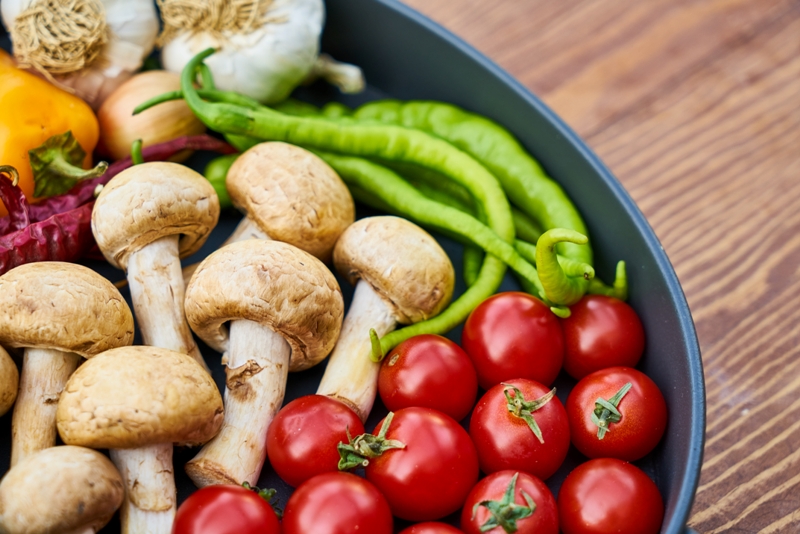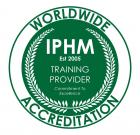Why You Need Vitamin D Right Now
3rd Oct 2020
Vitamin D is very much in the news these days, recent studies showing that it can reduce the risk of developing Covid-19 and the severity of the illness itself.
In one recent study, Dr. David Meltzer MD, PhD, University of Chicago's chief of hospital medicine and Director of the Centre for Health and Social Sciences, and his researchers, identified a link between vitamin D deficiency and developing Covid-19.
As well as the Covid challenges, we need Vitamin D for many health reasons:
- Strengthens the immune system.
- Aids the growth and strength of bones and teeth.
- Reduces the risk of osteoarthritis.
- Regulates the absorption of calcium and phosphorous.
- Helps our muscles to work efficiently.
- Vital for skin protection, growth, repair, rejuvenation and destroying the free radicals that cause premature ageing.
- Boosts our energy levels.
- Helps to promote the production of serotonin, our feel-good hormone, relieving depression and anxiety.
- Helps to create a sense of well-being.
WHAT IS VITAMIN D?
It is a hormone rather than a vitamin. When our skin is exposed to sunlight, a chemical reaction occurs in the body to produce cholecalciferol (vitamin D3). The liver and kidneys then convert it into an active form for use by the body.
ARE YOU DECIFIENT IN VITAMIN D?
90% of your vitamin D is produced in your skin in response to sunlight, and 10% of it is obtained from your food. So you could be deficient if you don't get much sunlight, you don't eat foods containing enough vitamin D, and you spend a lot of time indoors, as during the covid-19 restrictions.
Here are some of the signs of vitamin D deficiency (but these symptoms could also have different causes)
- Fatigue and tiredness
- Getting ill or infection more often
- Impaired wound healing
- Bone and back pain
- Bone loss
- Muscle weakness, pain or cramps
- Mood change, like depression
If you are prone to these symptoms, it would be a good idea to step up your vitamin D.
VITAMIN D2 or D3?
Vitamin D means D2 or D3. D2 comes from plant sources, and fortified foods, such as milk or cereal products. D3 comes from exposure to sun, from animal sources such as fish oil, fatty fish, liver, and egg yolks and from some fortified foods.
Although we need both forms, Vitamin D3 is more important for health and wellbeing. The body absorbs and uses it better, and it is more effective at treating diseases. The body can store Vitamin D3 during sunny times, for use during the winter months, but we do need to help create the store in the first place.
HOW TO GET ENOUGH?
Now, more than ever, we need Vitamin D for our health, well-being and morale, as we approach winter with reduced sunlight, possible SAD (seasonal affective disorder), rising covid-19 illness, flu and colds, and possibly low spirits resulting from our challenging situations.
As Vitamin D3 is mostly found in animal products, vegetarians and vegans need to consider supplementing.
Older people, indoor living, and people with liver or kidney problems, risk vitamin D deficiency. Try to eat more vitamin D-rich foods, take a supplement, and try to get outdoors more.
Sunshine
Sun exposure is the most important natural source of vitamin D. Short bursts of sunlight, often just 10 minutes at a time, gets your body producing plenty of vitamin D. With cloudy or overcast weather, the sun's UV rays still reach your skin, although with less intensity than on a sunny day, and can still help the body to produce vitamin D.
A window doesn't allow the sun's UVB rays through, so you need to get outside, whatever the weather.
Foods
Eat foods rich in Vitamins D
- Foods fortified with D - dairy, some orange juices, milk, breakfast cereals, yoghurt (but beware of the sugar level in these!)
- Eggs, especially the yolk
- Fatty fish - tuna, mackerel, salmon, sardines, trout, pilchards, kippers, eels
- Whitebait, herring, tilapia
- Cod liver oil
- Mushrooms - all types
- Almond milk
- Pork Ribs
- Beef liver
Supplements
The latest advice is no more than 4000 iu (100 mcg) of Vitamin D each day from food and supplements. So, try to eat enough Vitamin-D rich foods, and supplement with D3, without exceeding 4000 iu each day. Browse the internet for the quantity of Vitamin D in the foods you eat and add these amounts to the quantity in your D3 supplement.
Keep well!
Copyright © 2020 Brenda Martin





